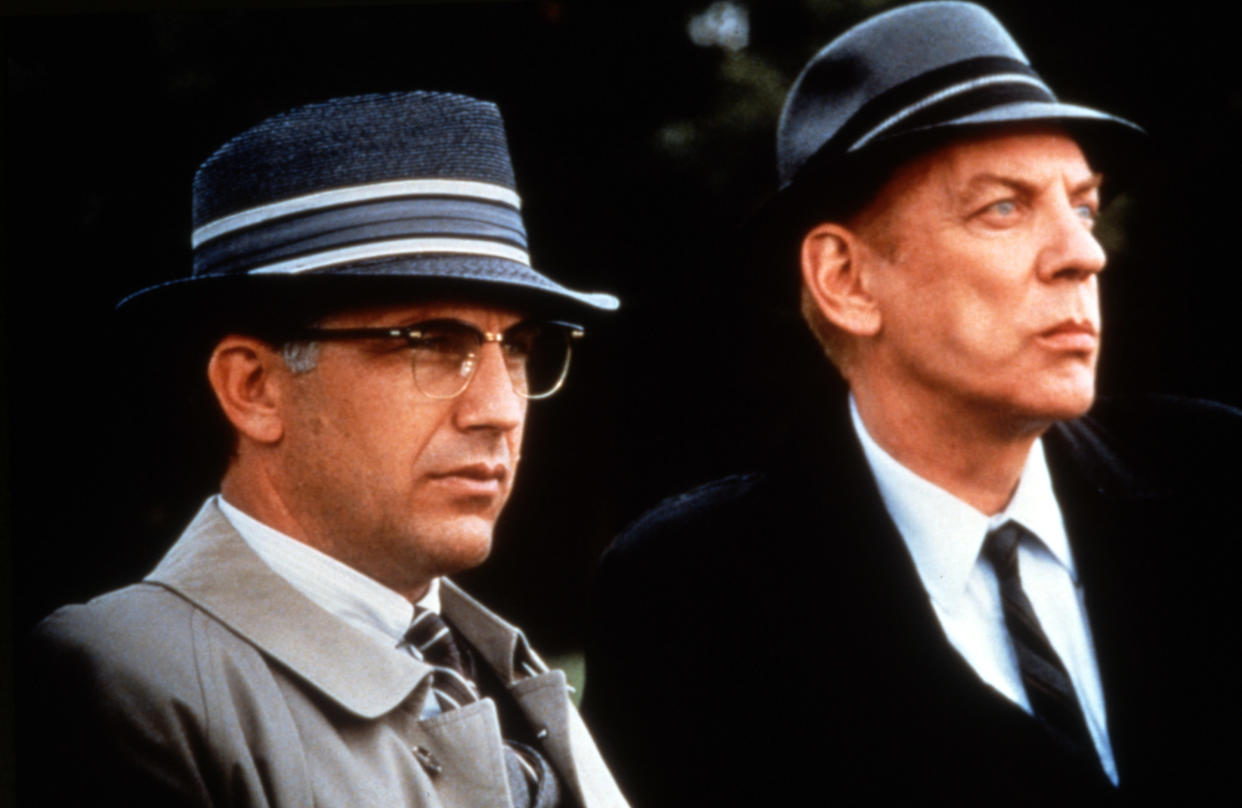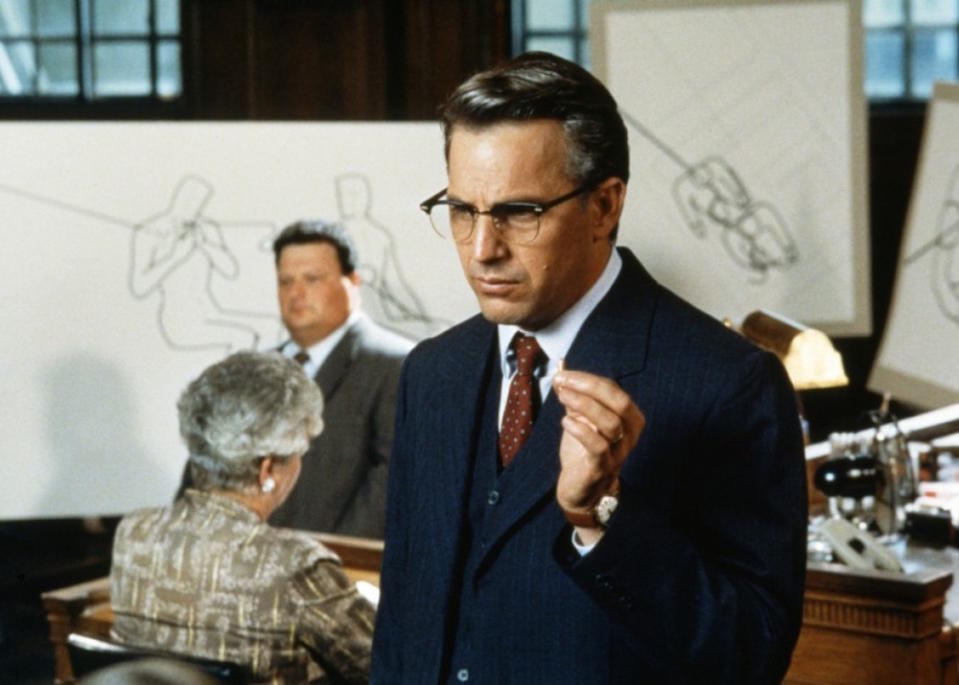Marlon Brando (Luckily) Turned Down Oliver Stone’s ‘JFK’: ‘I Would Have Been F*cked’

One of the most iconic scenes in Oliver Stone‘s 1991 classic “JFK” involves Donald Sutherland as a mysterious operative filling Kevin Costner‘s Jim Garrison in on the forces behind the 1963 assassination of President John F. Kennedy. In an exhilarating tour de force performance for which Sutherland should have been Oscar-nominated, the actor tells a mesmerizing story packed with dense information that blows Garrison’s — and by extension, the viewer’s — mind, shifting the movie into an intense higher gear that propels the film’s final hour. The scene is unthinkable without Sutherland, and yet it could have gone a very different way.
At a live edition of IndieWire’s Filmmaker Toolkit podcast presented by the American Cinematheque in Los Angeles, writer, producer, and director Stone revealed that he had discussed the role Sutherland eventually played with one of his childhood heroes. “I had been dumb enough to go to Marlon Brando,” Stone said. “We all love him, of course. But if he’d said yes I would have been fucked. That scene would have gone on for twice the length.” Stone credited Sutherland with delivering information quickly and dramatically and noted that the scene originally took place later in the film but got moved up in order to set the stage for the final act. “The picture rises to another level, because Costner realizes what he’s up against and it’s much bigger than he ever thought.”
More from IndieWire
Brando wasn’t the only actor who turned Stone down; the director also remembered offering the role of Garrison to Harrison Ford and Mel Gibson. “Harrison Ford was terrified of it,” Stone said. “There’s a risk once you play that role. But Kevin has guts.” According to Stone, Costner’s participation helped land the financing, as he was one of the biggest stars in the world at the time thanks to hits like “Bull Durham,” “Field of Dreams,” and “Dances with Wolves.” Although the subject matter was difficult and controversial, Stone secured a large budget for the film (around $40 million in 1991 dollars) by casting Costner and pitching the movie to Warner Brothers as a murder mystery. “I sold it to some very sympathetic executives, Terry Semel and Bob Daly, as a thriller. They liked the idea because there was a big question: Who committed the murder and how does it get resolved?”

Stone found himself playing defense even before “JFK” was released, as numerous media outlets tried to discredit him and the film for challenging the official narrative that accused assassin Lee Harvey Oswald acted alone. “The press never did their job, they never did any work,” Stone said. “They just accepted the Warren Commission.” Stone feels that the vitriol “JFK” inspired ultimately made things more difficult for him in Hollywood. “It’s been a battle for me and has hurt me in the business. When people consider you a troublemaker and a conspiracy theorist, you can’t ever recover the trust with certain people who will back the government no matter what. I guess I have to laugh, but I do have some anger about how impossible it is to get the truth out in this country, and how much the government continues to lie about current events.”
That anger continues to fuel Stone as he directs documentaries like this year’s excellent “Nuclear Now” and “JFK Revisited: Through the Looking Glass,” which updates “JFK” to include research uncovered in the 32 years since the movie’s release. Stone says that in spite of constantly increasing obstacles, he’s more passionate about filmmaking than ever and is a different director now than when he made “JFK.” “I know more,” he said. “I have all this information on the military-industrial complex, and I felt it was necessary to do an updated version so people might better understand what happened. It annoyed me that all this information was coming out of the assassination records review board and had been ignored by the media.”
Stone concluded that working in documentaries has revitalized him as an artist, and allows a directness that’s difficult to achieve in narrative filmmaking. “I did 20 feature films and I’m proud of them,” he said, “but it’s a lot of work. At a certain point you only have so much time and you want to get to the point. It’s very important to me to get it right because we don’t seem to have a good sense of our own history. I’ve been trying to get to the big stuff. It’s not a simple world, but you have to wonder why the problems in ‘JFK’ are still around and all around us and keep the military budgets high in this country. Who are the people that are benefiting? They shouldn’t be there. This is a disgusting criminal enterprise that’s been going on for a long, long time, and it’s getting worse.”
The Filmmaker Toolkit podcast is available on Apple Podcasts, Spotify, Overcast, and Stitcher. The music used in this podcast is from the “Marina Abramovic: The Artist Is Present” score, courtesy of composer Nathan Halpern.
Best of IndieWire
Where to Watch This Week's New Movies, from 'Bottoms' to 'Scrapper'
The Best Survival Movies, from ‘Cast Away’ and ‘The Revenant’ to ‘The Martian’ and ‘Alive’
Sign up for Indiewire's Newsletter. For the latest news, follow us on Facebook, Twitter, and Instagram.

 Yahoo News
Yahoo News 
